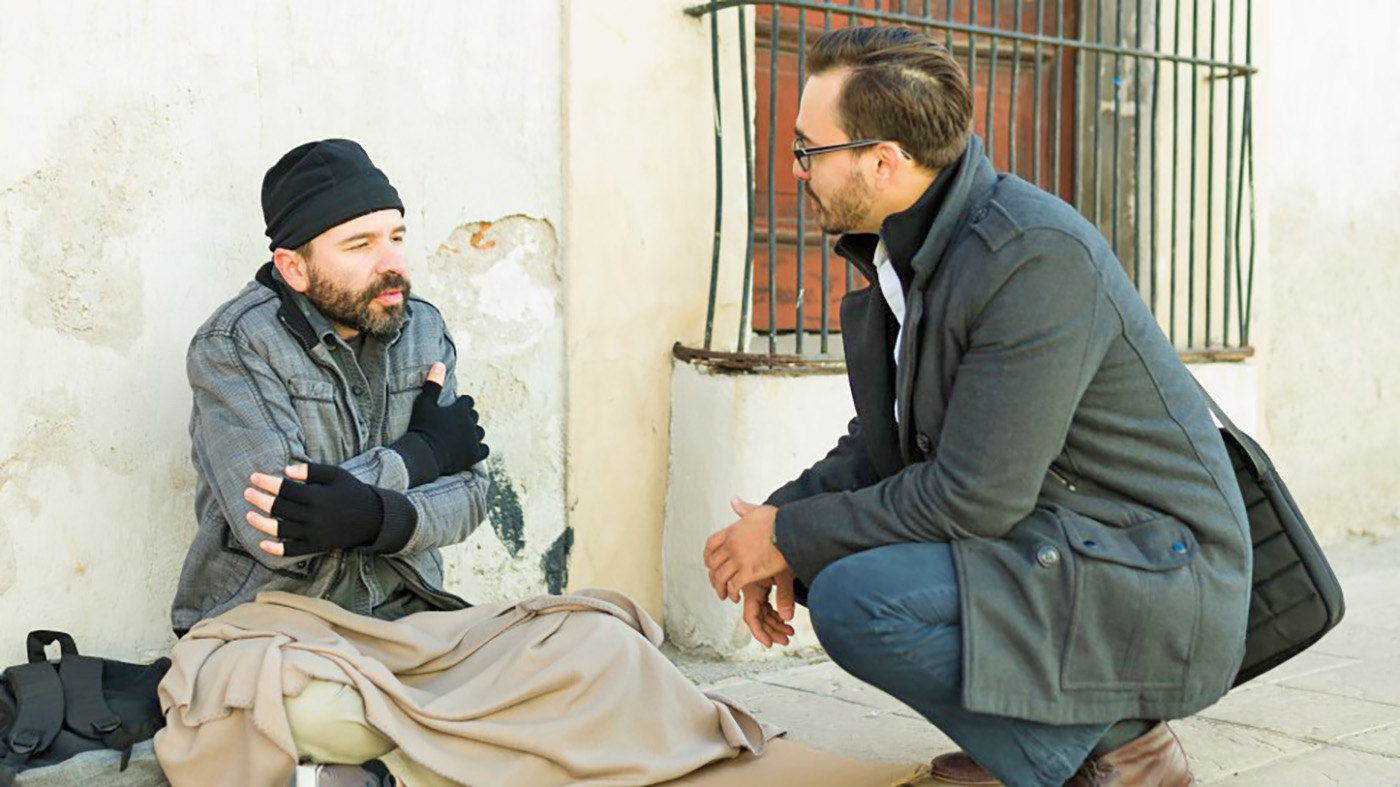Unsheltered homelessness is one of the most dangerous situations a person can face. It can severely harm one’s whole health: mind, body and soul. When a Veteran is unsheltered, there’s no time to delay getting them to a safe place and quickly on a path to permanent, stable housing.
Data released in December by the Department of Housing and Urban Development (HUD) showed that on a single night in January 2023, 35,574 Veterans were experiencing homelessness, an increase of 7.4% over 2022. Looking more closely, 15,507 Veterans were experiencing unsheltered homelessness, meaning they were sleeping in a place not meant for human habitation, and that was an increase of 14.3% over 2022.
Even before the data were released, we put a plan in motion to reach and assist more unsheltered Veterans across the nation this winter. The results are in. We reached more than 500 Veterans and over 63% of them are either permanently housed or on a path to permanent housing.
Surging into action
From November 2023 to January 2024, homeless program staff members at six VA medical centers stepped up to engage and assist unsheltered homeless Veterans. From Seattle to Bay Pines, Florida, VA staff members partnered with local community providers to carry out “unsheltered surges,” dramatically increasing their outreach to homeless encampments, bus stations and other community locations to identify Veterans in need of shelter and permanent housing.
Given the urgency of engaging and providing critical services for unsheltered homeless Veterans, the participating VA medical centers set local targets in three areas: initial engagement, providing same-day emergency and interim housing, and placing Veterans on a path to permanent housing.
Working as one team
Many community based organizations joined us in our unsheltered surge efforts. This close coordination is the cornerstone of VA’s broader One Team approach in which VA and our local partners continually share information about homeless Veterans to ensure we deliver services tailored to each individual.
In Long Beach, California, VA developed the Veterans Collaborative Outreach Team with community partners to enhance their ability to quickly reach and provide services to unsheltered homeless Veterans in their area. Members of the team conduct weekly outreach together.
“Operating in isolation limits our impact,” said Katrese Epps, Health Care for Homeless Veterans coordinator at Long Beach VA. “But through our team and our partnerships, we gain deeper insights into the community, which leads to more effective comprehensive services for vulnerable Veterans.”
From unsheltered to sheltered on the same day
During the surge efforts in southern California, San Diego VA’s Homeless Outreach and Recuperative Care teams encountered an elderly Veteran with multiple serious medical issues. It was evident that another night on the street could be deadly.
“The surge empowered our team to break down barriers and provide same-day transitional housing for this at-risk Veteran,” said Tulare Mott, outreach social worker. “While our team is always dedicated to the mission of ending Veteran homelessness, the stars really aligned this time to allow us and our community partners to support this Veteran and get him a warm, safe place to stay.”
Surge effort results exceed expectations
The six VA medical centers who participated in the surge shared one common goal: reduce unsheltered homelessness among Veterans in their communities and across the country.
The results showed we engaged 525 unsheltered homeless Veterans during the surge. Of the Veterans engaged, 264 were placed in emergency or interim housing on the same day and 335 were placed on a path to permanent housing. Importantly, VA workers continue to track the Veterans we met—many for the first time—so that we can keep offering services to them in the future and improve those services to better meet their needs.
The initial phase may have ended, but it provided many valuable lessons VA medical centers across the country can adopt in their everyday work. Here are just a few:
- Not every homeless Veteran knows about the services offered by VA or can come to VA or a community location to learn more about them.
- We must reduce barriers and burst myths.
- We need to continue to develop and use innovative tools to help us reach and follow unsheltered Veterans.
Learn about VA programs
If you are a Veteran who is homeless or at risk for homelessness, call the National Call Center for Homeless Veterans at 877-4AID-VET (877-424-3838).
For more stories like these, subscribe to the Homeless Programs Office newsletter to receive monthly updates about programs and supportive services for Veterans experiencing or at risk of homelessness.
Topics in this story
Link Disclaimer
This page includes links to other websites outside our control and jurisdiction. VA is not responsible for the privacy practices or the content of non-VA Web sites. We encourage you to review the privacy policy or terms and conditions of those sites to fully understand what information is collected and how it is used.
More Stories
Study underscores important role COVID vaccination can have in protecting Veterans from infection and reducing long-term health consequences
Columbia VA’s robotic surgery teams completed their 800th robotic surgery and are on schedule to hit 1,000 by the end of the year.
In a decentralized clinical trial, Veterans can participate from their own homes or local VA instead of having to travel to a research site.







Such important work, and inspiring collaboration that shows the kind of results you can get. Everyone deserves a safe place to to lay their head, and the services and resources that will allow them to remain there.
Tunnel to Towers also has a new program to house homeless vets. It could be mentioned as a resource. Thank you for your service to veterans.
As a former homeless veteran I’ve made it a part of my life to reach out to fellow vets. Unfortunately due to issues such as PTSD or psychological issues many prefer to live ‘in the bush’. This is a question that needs to be tackled.